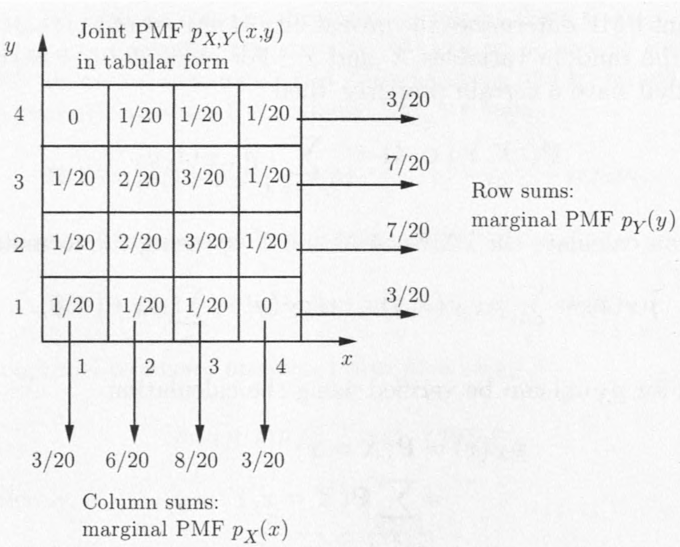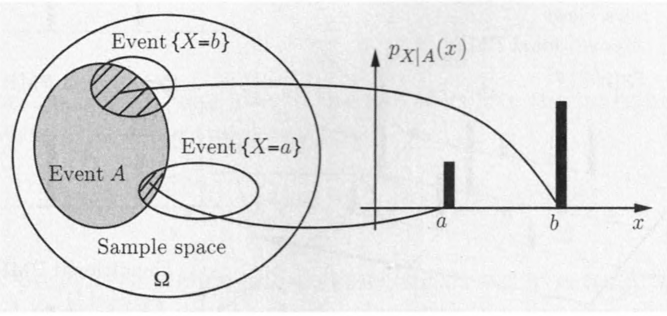2.1 Basic Concepts
- Random Variable (RV): A function that assigns a numerical value to each outcome of an experiment.
- A random variable is called discrete if it can take a finite or countably infinite number of values.
- Example: The number of heads in a sequence of coin tosses.
2.2 Probability Mass Function (PMF)
- The Probability Mass Function (PMF) of a discrete random variable is denoted by and represents the probability that :
- For all :
- Example: If represents the number of heads in two independent tosses of a fair coin, the PMF of is:
2.3 Functions of Random Variables
- A function of a random variable is itself a random variable.
- The PMF of can be computed from the PMF of .
2.4 Expectation, Mean, and Variance
- Expectation or Mean: The expected value of a discrete random variable is:
- Moment (n-th):
- Variance: The variance of measures the spread of its values:
- Standard Deviation: measures spread (like variance) but same units as
Expected Value rule for Functions of Random Variables
2.5 Joint PMFs of Multiple Random Variables
- Joint PMF: For two random variables and , the joint PMF is , which gives the probability of the event and :
- The marginal PMF of is obtained by summing over all possible values of :
Table example

2.6 Conditioning
- Conditional PMF: The conditional PMF of given is:

- The Total Expectation Theorem relates the expectation of to the conditional expectations:
2.7 Independence
- Two random variables and are independent if:
Special Discrete Random Variables
-
Bernoulli Random Variable:
- A Bernoulli random variable takes two values, typically 0 and 1.
- PMF:
- Expectation: , Variance:
-
Binomial Random Variable:
- A sum of independent Bernoulli trials.
- PMF:
- Expectation: , Variance:
- See 1.6 Independence for intuition
-
Geometric Random Variable:
- Counts the number of trials until the first success.
- PMF:
- Expectation: , Variance:
-
Poisson Random Variable:
- Approximation of Binomial where is small and is large.
- PMF:
- Expectation: ,
- See 6) Bernoulli and Poisson